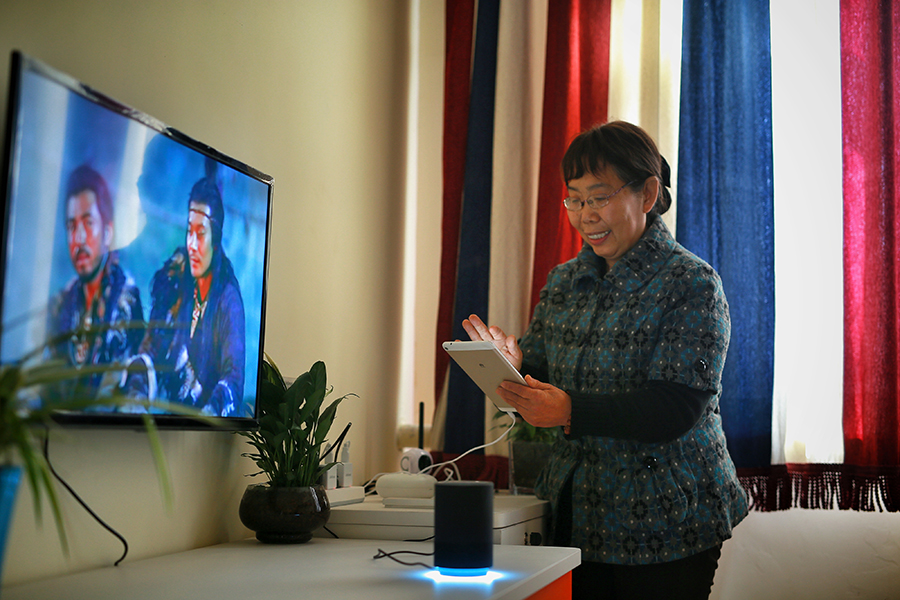
My husband's 75-year-old grandmother has been living with us in Beijing for a month now. Energetic, she volunteers to cook meals for us every day. The food she prepares is invariably delicious. That's not all. Granny helps us out with household chores. When we step out for a walk, I struggle to keep pace with her.
What surprises me most, however, is how good she is at using smartphones and how eagerly she embraces the latest advances in digital life. Mind you, she had received only primary school education.
When she joined us, we bought her a Beijing transportation card so she could use city buses and commuter trains. One day, she came back with an e-card installed on her smartphone. "It's far more convenient. I saw others walk into the subway station by scanning their phones. I asked one for help to set it up on my phone," she said with a big smile.
At that moment, we realized digital convenience has great appeal to senior citizens as long as we help them learn the relevant digital tools at their convenience.
Later, we taught her how to stream videos, buy groceries and vegetables on smartphones, and play mahjong online, which quickly became her favorite smartphone app.
Though some digital functions confused her initially, patient help with instructions a few times and some encouragement helped her overcome the teething troubles.
Most importantly, such interactions have deepened our bonds, establishing a firm emotional connect.
An elderly-inclusive digital society, I'd reckon, is one where the graying population can live a contented life.
The digital sector is reshaping almost every aspect of society, as more services move online and technologies become smarter. This shift is being driven by a desire for greater efficiency, reduced labor requirements and lower operating costs.
While most people have benefitted from the transformation, some of the elderly may find themselves struggling with the rapid change brought about by smartphones as few cellphone features are specifically designed for seniors.
Yet, mastering the operation of basic functions on smartphones is also salutary for seniors, helping them to stay connected, keep their minds sharp and relieve boredom.
China has 264 million people aged 60 and above, accounting for 18.7 percent of its 1.4 billion population, according to the seventh population census conducted in 2020.
Since 2020, the Ministry of Industry and Information Technology has been working hard to build an elderly-friendly digital society, with a slew of measures introduced to help senior citizens cross the digital divide.
In order to improve the digital literacy of seniors, the authorities concerned have encouraged tech companies to launch easy-to-use interfaces and recruited volunteers to provide training on the use of intelligent equipment.
In Hangzhou, Zhejiang province, staff members from China Mobile provide door-to-door service and on-site demonstrations to teach elderly people how to navigate the wired world, such as making online reservations, checking bus routes and using ride-hailing services, enabling the elderly to better access digital technology.
More importantly, family members can play a bigger role in helping senior citizens embrace digital life. When grandparents approach their grandchildren for help with smartphones, a little additional patience on the part of youngsters can go a long way in encouraging the seniors to move further on the digital road to happiness.
As for me, I'm more than happy to play mahjong online with Grandma. The other day, she knocked on my door and said, "Come, we need a fourth player to play mahjong together."

